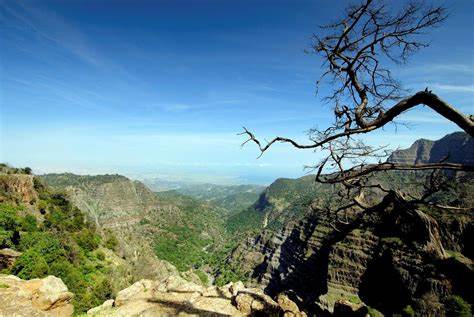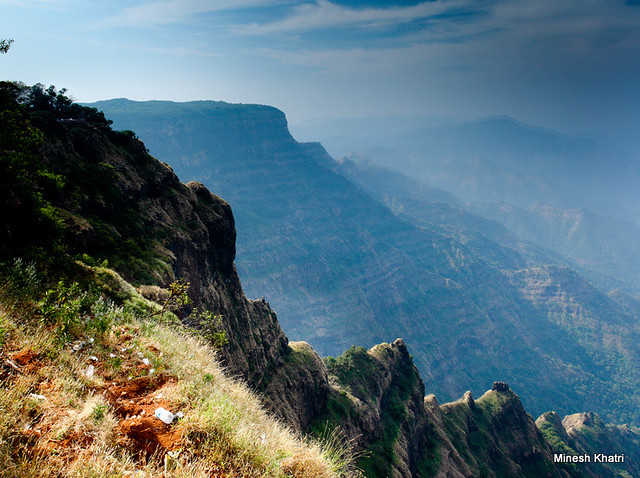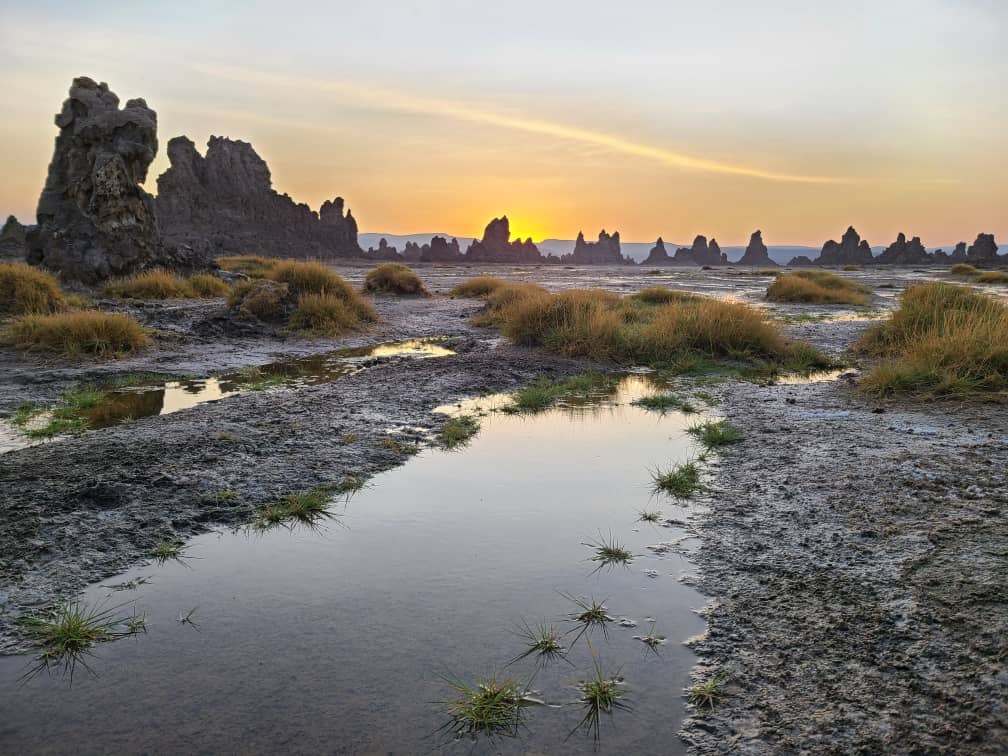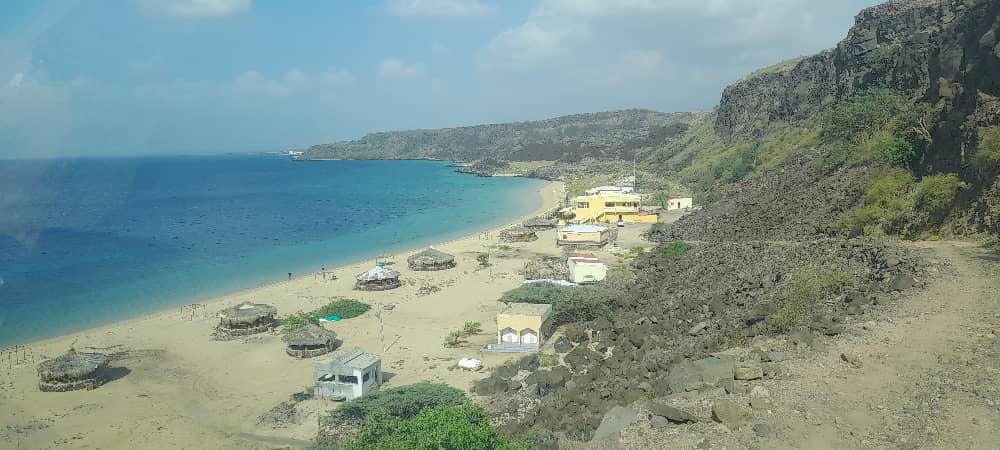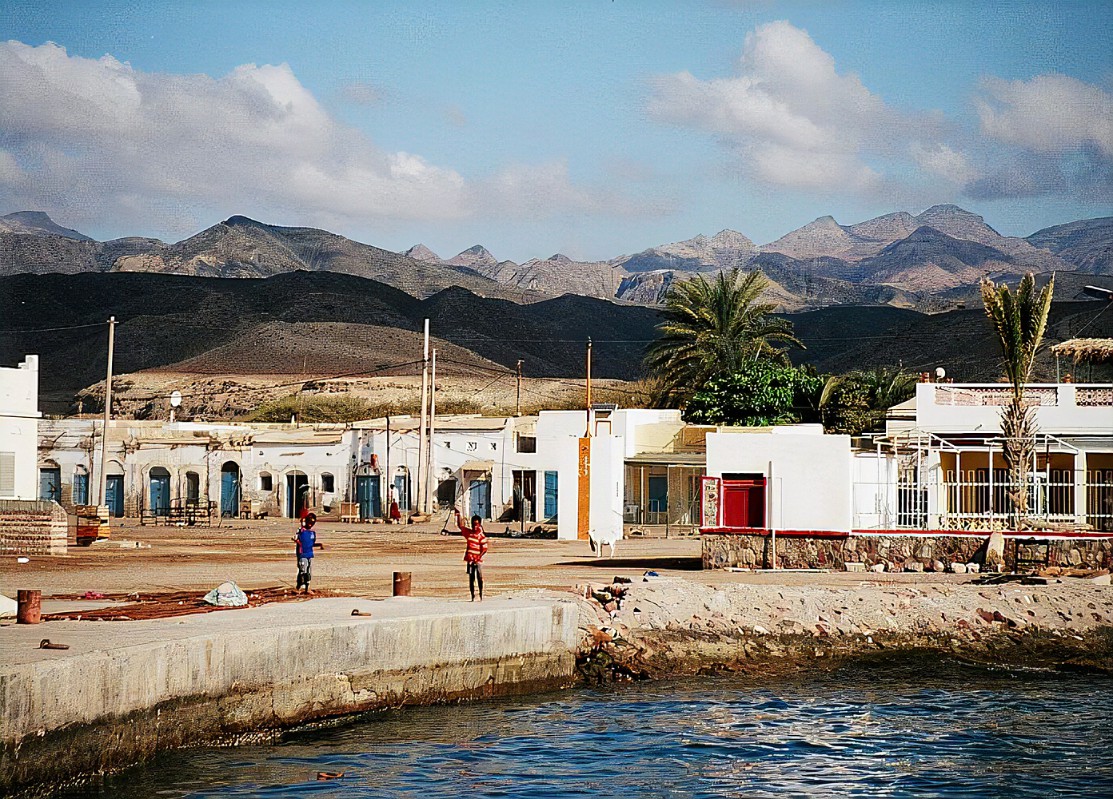
Introduction to Djibouti
Located in the strategically significant Horn of Africa, Djibouti is a small yet captivating nation that offers a unique blend of cultures and breathtaking landscapes. Surrounded by the Red Sea and the Gulf of Aden, this country serves as a crucial maritime crossroads, reflecting centuries of trade and cultural exchange. With its geographical position, Djibouti has been a pivotal point of contact for various civilizations, from ancient times to the modern era.
Djibouti’s geographical diversity is remarkable, characterized by arid deserts, volcanic formations, and stunning coastlines. The country boasts a range of natural wonders, including the surreal Lake Assal, which is the lowest point in Africa and one of the saltiest lakes in the world, and the striking mesas of the Day Forest National Park. These landscapes not only enhance the country’s visual appeal but also provide habitats for unique flora and fauna, making Djibouti a fascinating destination for nature enthusiasts.
<p><p>Moreover, Djibouti’s cultural tapestry is as rich as its landscapes, influenced by Somali, French, and Arab heritages. This multifaceted diversity is evident in the nation’s languages, food, and traditions. The capital city, Djibouti City, is a vibrant hub where modernity meets tradition, offering markets bustling with activity and eateries serving an array of culinary delights. Visitors to Djibouti will find a welcoming atmosphere, often enhanced by the hospitality of its people, who are proud to share their history and culture with those who seek to understand their land.
<!– wp:paragraph –>
In light of these attributes, Djibouti emerges as an appealing destination for adventurous travelers, offering both the excitement of exploration and a deepened appreciat
ion of a
unique cultural heritage. As travelers navigate through its hidden gems, they will uncover not just a country, but a vibrant community shaped by its diverse influences and remarkable natural beauty.
Best Time to Visit
When planning a trip to Djibouti, understanding the climate and weather patterns is
crucial for maximizing the travel experience. The country experiences a tropical desert climate, characterized by high temperatures, low humidity, and minimal rainfall. Generally, Djibouti’s climate can be divided into two main seasons: the cool season, which runs from October to April, and the hot season, from May to September. During the cooler months, temperatures range from 25°C to 30°C, creating a more comfortable environment for outdoor exploration.
November through March is particularly favorable f
or visiting Djibouti due to the milder temperatures and lower humidity levels. This time of year is ideal for activities such as hiking, diving, and enjoying the unique landscapes, as the weather permits extensive exploration without the discomfort of extreme heat. Additionally, travelers can benefit from participating in various local festivals during this period, which showcase the rich cultural heritage of Djibouti. For instance, the celebration of Eid al-Fitr, which marks the end of Ramadan, often falls within the cooler months and provides insight into local customs and traditions.
In contr
ast, the hotter months between May and September can see temperatures soaring above 40°C, making it challenging to engage in outdoor activities comfortably. However, this season is when travelers can experience the country’s vibrant summer events, such as the Djibouti Diving Festival, attracting water sports enthusiasts fromaround the world. It is worth noting that while daytime is sweltering, evenings can be relatively cooler, allowing for some respite from the heat.
Considering these factors, choosing the right time
to visit Djibouti largely depends on personal preferences regarding weather and regional events. Nonetheless, either season offers unique experiences that highlight the country’s charm, making it an enticing destination all year round.
Getting There: Transportation Options
Reaching Djibouti, conveniently located on the Horn of Africa, offers travelers a variety of transportation options that cater to both international and regional visitors. The primary gateway to this unique country is through Djibouti-Ambouli International Airport, which operates numerous international flights. Airlines from various countries service this airport, allowing travelers from Europe, Asia, and the Middle East to access Djibouti with relative ease. Additionally, regional airlines connect neighboring nations such as Somalia, Ethiopia, and Eritrea, ensuring that those within the region can also visit Djibouti efficiently.
For travelers opting for an overland adventure, Djibouti shares borders with both Ethiopia and Somalia. From Ethiopia, the main route leads travelers through the city of Dire Dawa before entering Djibouti. Likewise, those coming from Somalia can traverse various paths to reach the Djiboutian border. It’s worth noting that these overland routes may come with residencies challenges, such as variable road conditions and border crossing regulations, which necessitate prior research and preparation.</p>
Upon arrival in Djibouti, the local transportation network provides several options to navigate the city and surrounding areas. Taxis
are a prevalent mode of transport, readily available at designated points around the airport and major urban areas. It is advisable for first-time travelers to agree on a fare before commencing their journey. Alternatively, the city is serviced by a network of local buses, which offer a cost-effective method for getting around, albeit with limited schedules and routes. For those seeking a more personalized travel experience, car rentals are available, allowing adventurers the freedom to explore the scenic coastal regions and hidden treasures Djibouti has to offer. Overall, careful planning of transportation methods can enhance the travel experience and facilitate a smoother journey through this captivating country.
Top Attractions and Activities
Djibouti, a small but captivating country in the Horn of Africa, offers a wealth of attractions and activities that cater to diverse interests. One of the premier natural wonders is Lake Assal, renowned for being the lowest point in Africa and one of the saltiest lakes in the world. The surreal landscape, characterized by its stunning turquoise waters and bordered by dramatic volcanic formations, presents an ideal spot for photography and exploration. Visitors to Lake Assal often find the unique geological features intriguing, making it a must-see destination for nature lovers.
Another notable highlight is the Day Forest National Park, a lush oasis that contrasts sharply with Djibouti’s arid surroundings. Home to diverse flora and fauna, the park provides opportunities for hiking, bird watching, and understanding the region’s ecology. Its dense forests and idyllic picnic spots make it an excellent choice for outdoor enthusiasts and families seeking to unwind amidst nature.
</p>
For those interested in coastal beauty, the pristine beaches of Tadjoura exemplify Djibouti’s stunning shoreline. The clear waters ar
e perfect for a variety of water sports, including snorkeling and diving, where one can marvel at vibrant coral reefs and marine life. The underwater scenery in this region is particularly noteworthy, attracting divers from across the globe. Besides water-related activities, the culturally rich local markets in Tadjoura offer a vibrant atmosphere filled with traditional crafts, spices, and fresh produce, inviting visitors to engage with the local community.
Moreover, exploring historical sites such as the 19th-century French colonial buildings and the ancient ruins scattered throughout Djibouti adds a layer of depth to the travel experience. Each attraction offers a unique insight into the nation’s identity and history, making it essential for visitors to immerse themselves fully in the vibrant culture that Djibouti has to offer.
<!– /wp:paragraph –>
Cultural Insights and Local Etiquette
Djibouti, located in the Horn of Africa, is a melting pot of diverse cultures and ethnic groups, predominantly consisting of Somali, Afar, and Arab communities. Understanding the cultural dynamics is crucial for an enriching travel experience. The primary language spoken is French and Arabic, with Somali and Afar being widely used in social contexts. Familiarizing oneself with basic phrases in these languages can pave the way for more meaningful interactions with locals.
Religion plays a significant role in the daily lives of Djiboutians, with the majority being Muslim. Visitors should be respectful of religious practices, especially during the holy month of Ramadan, when fasting from dawn to sunset is observed. It is advisable for travelers to refrain from eating or drinking in public during this period, as it can be viewed as disrespectful to those practicing the fast.
<!– wp:paragraph –>
When it comes to customs, greetings hold great importance in Djibouti. A polite handshake or a simple “salaam” (peace) can help establish rapport. It is customary to inquire about the well-being of one’s family, which is a vital aspect of social interaction. Additionally, when visiting local homes, it is polite to remove shoes upon entry, a practice reflecting the significance of cleanliness in the culture.
Dress codes are another aspect travelers should consider. Although Djibouti is relatively liberal compared to some neighboring countries, modesty in attire is appreciated, especially in rural areas. Lightweight, loose-fitting clothing is recommended to cope with the hot climate, while women, in particular, should opt for outfits that cover shoulders and knees.
<p>
To engage positively with the local population, travelers should observe these cultural norms and display genuine interest in Djibout
ian traditions. Such mindful interactions can foster a respectful and enriching travel experience, leading to lasting memories of the vibrant culture on display in this unique region.
</p>
Cuisine and Dining in Djibouti
Djibouti’s culinary landsc
ape is a vibrant tapestry of flavors and influences, reflecting its unique cultural heritage and geographical location in the Horn of Africa. The cuisine is a delightful blend of Ethiopian, Arabic, and French influences, resulting in a rich assortment of traditional dishes that can tantalize any palate. When visiting Djibouti, travelers can expect a culinary adventure that showcases the country’s cultural diversity.
CUISINE
One of the most iconic dishes to try is <strong>lahoh, a spongy flatbread similar to Ethiopian injera, often served with stews or curries. Another staple is skoudehkaris, a fragrant rice dish cooked with a variety of spices, affectionately referred to as the Djiboutian version of biryani. This dish is typically accompanied by meat, combining local spices that create an unforgettable taste experience.
Street food is an essential part of the dining scene, offering quick bites that are both affordable and delicious. Popular options include samboosa, a savory pastry filled with meat or vegetables, and kebabs, skewered grilled meat marinated in local spices. There’s also the delightful café d’arabia, a traditional coffee beverage that symbolizes hospitality in Djiboutian culture, often enjoyed with friends or family.
For those keen on experiencing authentic dining, local restaurants such as La Pita and Restaurant Les Acacias</strong> are highly recommended. These establishments offer traditional meals made with fresh ingredients and are well-regarded among both locals and travelers. Diners can expect warm hospitality and an opportunity to immerse themselves in the local food culture.
The cuisine of Djibouti invites visitors to indulge in its myriad flavors while showcasing the country’s rich historical influences. Whether it’s traditional dishes or vibrant street food, the culinary experiences of Djibouti are sure to leave a lasting impression.
Safety Tips for Travelers
Traveling to Djibouti can be an exhilarating experience, but ensuring your safety should be a top priority. Before embarking on your journey, it is advisable to research and prepare adequately. One of the first considerations is health and hygiene. It is recommended that travelers obtain necessary vaccinations, including those for hepatitis A and typhoid, among others. Additionally, maintaining good hygiene practices such as frequent handwashing and using sanitizers can help prevent illness during your stay.
Natural hazards are another concern, particularly for those wishing to explore the unique landscapes of Djibouti. The country’s terrain can vary from arid deserts to coastal areas, and it is important to stay informed about weather conditions before heading out on excursions. For those planning to hike or trek, wearing appropriate footwear and bringing sufficient water is crucial, as temperatures can soar. In the event of an emergency, have a basic first aid kit available and familiarize yourself with the local medical facilities.
When navigating urban areas, exercising caution is essential. It is advisable to avoid displaying valuable items and to remain vigilant, especially in crowded places. Opt for well-known transportation methods, such as licensed taxis, rather than informal or unmarked options. Additionally, it is beneficial to stay connected with family or friends back home, keeping them informed of your travel plans and location. Emergency contact information, including local authorities and your country’s embassy, should be readily accessible to facilitate quick assistance if needed.
Lastly, consider obtaining travel insurance to protect yourself from unexpected medical expenses or trip disruptions. With careful planning and adherence to safety measures, your trip to Djibouti can be both safe and enjoyable, allowing you to fully experience all the hidden gems this exceptional region has to offer.</p>
Accommodations in Djibouti: Where to Stay
When planning a vi
sit to Djibouti, travelers will find a diverse range of accommodations suitable for different budgets and preferences. From luxurious resorts to cozy guesthouses, the options cater to both urban explorers and those looking to immerse themselves in the natural beauty of the Horn of Africa.
</p>
In the capital city, Djibouti City, visitors can
enjoy several well-rated hotels that offer a mix of comfort and convenience. For example, the Djibouti Palace Kempinski is a five-star resort that presents stunning waterfront views and high-end amenities, such as a spa, several restaurants, and direct access to the beach. Conversely, those traveling on a tighter budget may opt for more affordable hotels like Hotel Alia, which offers basic comforts and a central location near local attractions. Staying in the city provides easy access to dining, shopping, and cultural experiences.
For travelers seeking a more authentic experience, rural lodging options present a unique alternative. Guesthouses and eco-lodges located near natural wonders, such as Lake Assal or the Gulf of Tadjoura, offer opportunities to engage with local culture and enjoy breathtaking scenery. Examples of such accommodations include Les Acacias, a charming guesthouse set in a serene environment, which showcases local hospitality and provides an ideal base for exploring nearby attractions.
Ultimately, the choice between city and rural accommodations in Djibouti hinges on individual preferences for convenience, experiences,
and budget. Whether opting for a luxurious resort or a quaint guesthouse, visitors can find a variety of options that enrich their journey through this remarkable destination.
<!– wp:heading {“level”:2} –>
Conclusion: Embracing the Journey
As we reach the end of this travel guide, it is essential to reflect on the immense allure that Djibouti holds for individuals eager to uncover the treasures of the Horn of Africa. For travelers seeking adventure, Djibouti offers an array of experiences that resonate deeply with a multicultural tapestry, breathtaking landscapes, and fascinating wildlife. Each destination narrates a unique story, from the vibrant capital to the serene shores of Lake Assal.
While Djibouti may not be the most conventional tourist spot, its charm lies in its authenticity and the warmth of its people. Venture into the bustling markets of Djibouti City, where the scents of spices intertwine, and the colors of traditional attire create a vibrant panorama. Engage with locals who are eager to share their culture and hospitality, enriching your travel experience in ways that typical tourist attractions often cannot. Such genuine connections foster a deeper appreciation for the destination and its heritage.
The stunning natural beauty of Djibouti is equally compelling. Whether it is the otherworldly landscapes of the Danakil Depression or the azure waters of the Red Sea, each geographical feature beckons adventurers to explore. Embarking on a journey through Djibouti is not merely about visiting sites; it is about embracing encounters that leave lasting impressions. This lesser-known gem of Africa finds its place in the hearts of those who dare to step off the beaten path, allowing for an exploration filled with wonder and discovery.
</p>
Ultimately, Djibouti is a destination that promises not only breathtaking views and thrilling adventures but also a profound connection
to culture and nature. We encourage prospective travelers to seize the opportunity and embrace the journey that Djibouti offers. Uncover its hidden gems and create memories that will remain etched in your spirit long after you have left its shores. CONTACT US


